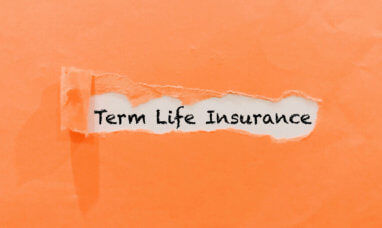One of the most important benefits of permanent insurance is that it creates cash value, which you can use to cover expenses, pay for your house, supplement your income at retirement, or for any major purchase. That’s good to year, but do you know how to get the money out of your life insurance policy?
Types of Life insurance That Create Cash Value
There are two main forms of life insurance: term life insurance and whole life insurance (a type of permanent life insurance). Cashing in a life insurance policy before death is possible with whole life insurance. Term life insurance is generally less expensive, but it does not generate cash.
Whole life insurance policies are usually more expensive than term life insurance policies for many reasons. First, whole life insurance policies provide coverage for your lifetime, not just for a predetermined period. Second, whole life insurance policies can create cash value that can be used for future expenses, such as additional retirement income. Term life insurance, on the other hand, is what can be called “pure insurance”, which means that there is an insurance payment for your beneficiaries when you die (the death benefit) and nothing else.
What Type of Life Insurance Policy Generates Immediate Cash Value?
If you’re looking to find out what type of life insurance policy generates immediate cash value, you’ll find very few options. A whole life policy that generates immediate cash value will most likely require a single premium. Single premium life insurance requires a large upfront outlay, although it can actually earn interest.
Is Life Insurance Cash Value Protected From Creditors?
Not only is the death benefit of life insurance protected from creditors, but the cash value is also protected. This means that your creditors cannot force you to surrender your policy for cash value in order to pay them back.
How Can I Get Cash From My Life Insurance Policy?
Here are four different ways to get cash from your insurance.
-
-
-
Withdrawals
-
-
You can generally withdraw limited amounts of money from your life insurance policy. The amount available differs depending on the type of policy you hold and the company issuing it. The main advantage of cash withdrawals is that they are not taxable up to the base of your policy, as long as your policy is not classified as a Modified Endowment Contract (MEC). A MEC is a term given to a life insurance policy whose funding exceeds the limits of federal tax law.
However, cash withdrawals can have unintended or unrealized consequences. Withdrawals that reduce your cash value could result in a reduction in your death benefit.
Cash withdrawals are not always tax-free. If, for example, you make a withdrawal during the first 10 years of the policy and the withdrawal results in a reduction in the death benefit of the policy, some or all of the money withdrawn may be subject to tax. Withdrawals are taxable to the extent they exceed your base in the policy.
Withdrawals that reduce your cash value may increase your premiums to maintain the same death benefit. Otherwise, the policy may expire.
-
-
-
Loans
-
-
Most cash value policies allow you to borrow money from the issuer using your cash accumulation account as collateral. Depending on the terms of the policy, the loan may be subject to variable interest rates. However, you are not required to qualify financially for the loan. The amount you can borrow is based on the value of the contract’s capitalization account and the terms of the contract.
On the plus side, amounts borrowed on non-MEC policies aren’t taxable and you don’t have to make any payments on the loan, although the outstanding loan balance may earn interest.
On the negative side, loan balances generally reduce your policy’s death benefit, which means your beneficiaries could receive less than expected. A policy loan can be a useful option if you need cash temporarily but want to keep the full death benefit in place by paying off the loan amount.
-
-
-
Life Settlement
-
-
This concept is quite simple. As the policyholder, you sell your life insurance policy to an individual or a life settlement company in exchange for cash. The new owner will keep the policy in force by paying the premiums. They will reap a return on the investment by receiving the death benefit when you die.
Most types of insurance are eligible for sale, including policies with little or no cash value. Generally, to be eligible for a life settlement, the insured must be at least 65 years old, have a life expectancy of 10 to 15 years or less, and a death benefit of at least $100,000.
The main advantage of a life settlement is that you can potentially get more for the policy than by cashing it in (surrender of the policy). The gain in excess of your base in the policy is usually taxed as ordinary income.
In addition to the tax liability you may face, life settlements usually come with another cost: up to 30% of your earnings may be paid out in commissions and fees, reducing the net amount you receive.
-
-
-
Surrender the Policy
-
-
Another way to get cash from your life insurance is to surrender your policy, or rather to cancel it. However, if you surrender the policy within the first few years of ownership, a surrender fee will likely be charged by the company, which will reduce your cash value. These fees vary depending on how long you have had the policy. Also, when you redeem your policy for cash, the gain on the policy is subject to income tax. If you have an outstanding balance on the policy, additional taxes may be incurred.
Although surrendering the policy may allow you to obtain the money you need, you obviously give up the right to death protection offered by the insurance.
If you can afford it, consider other options before using your life insurance policy to get cash, such as taking out a home equity loan or borrowing from your 401(k) plan. Some choices are better than others depending on your circumstances.
Featured Image: Twenty20








